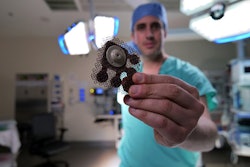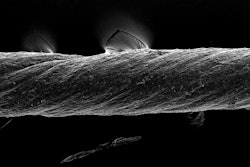
Jiancheng Lai and Weichen Wang
According to a recent Nature article, a team of researchers at Stanford University have developed an electronic skin, aka e-skin, that mimics the sensation of touch and transmits electrical signals to the brain. The e-skin is a thin, flexible sensor made from a stretchy polymer that can convert physical changes like pressure or temperature into electrical pulses. In experiments with rats, the e-skin was connected to the animals' somatosensory cortex, causing their legs to twitch when the e-skin was touched.





















